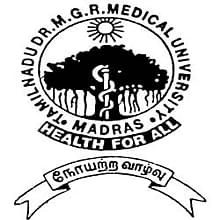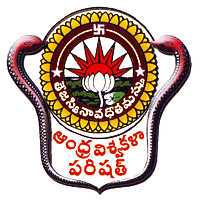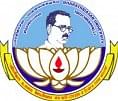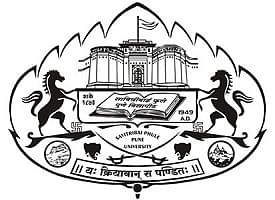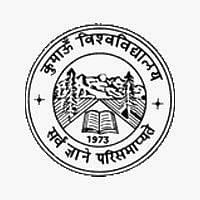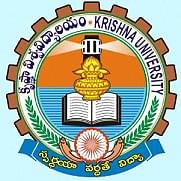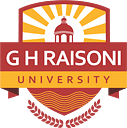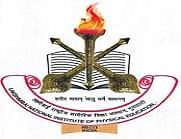Introduction about Ph.d in English
A Doctor of Philosophy (Ph.D.) in English from the best University in India is an advanced academic degree program designed for students who wish
to pursue in-depth research, scholarship, and expertise in the field of English
language, literature, and related areas. It is the highest academic
qualification attainable in the discipline and is typically undertaken by
individuals seeking to become scholars, educators, researchers, or experts in
various aspects of English studies.
The Ph.D.
in English program offers students the opportunity to engage deeply with
literature, language theory, critical analysis, cultural studies, and other
interdisciplinary approaches within the broader field of English studies. It
emphasizes original research, critical thinking, and scholarly writing,
preparing students for careers in academia, research, publishing, writing, and
other related fields.
Key
components of a Ph.D. in English program may include:
- Coursework:
Ph.D. students typically take a series of advanced coursework in areas
such as literary theory, literary history, genre studies, cultural
studies, linguistics, rhetoric, composition, and research methodologies.
These courses provide students with a strong theoretical foundation and
critical framework for their research.
- Comprehensive Examinations:
Ph.D. candidates are often required to pass comprehensive examinations,
also known as qualifying exams or comps, which assess their mastery of key
concepts, theories, and methodologies in English studies. These exams may
be written and/or oral and typically cover a broad range of topics within
the field.
- Research and Dissertation: The
heart of the Ph.D. program is the dissertation, an original research
project that makes a significant contribution to the scholarly
understanding of a specific topic within English studies. Ph.D. students
work closely with faculty advisors to develop and execute their research,
culminating in a written dissertation that demonstrates their mastery of
the subject matter, critical analysis, and scholarly writing.
- Teaching Experience: Many
Ph.D. programs in English include opportunities for students to gain
teaching experience as teaching assistants or instructors. This may
involve leading undergraduate courses, seminars, or workshops in writing,
literature, or language studies under the supervision of faculty mentors.
- Professional Development:
Ph.D. programs often provide opportunities for professional development,
including conference presentations, publication opportunities, academic
networking, and participation in scholarly communities within and beyond
the university.
What is admission process for Ph.D. in English?
The admission process for a Ph.D. in English at the best affordablecollege in India can vary depending
on the specific requirements and procedures of the institution offering the
program. However, here's a general overview of the typical admission process:
- Research and Preparation:
Prospective Ph.D. students should conduct thorough research on the Ph.D.
programs in English offered by various universities. They should review
the program curriculum, faculty expertise, research areas, and any
specific admission requirements.
- Meet Eligibility Criteria:
Ensure that you meet the eligibility criteria set by the institution for
admission to the Ph.D. program. This typically includes having a relevant
master's degree (such as an M.A. in English or a related field) from a
recognized university, with a minimum GPA or equivalent academic
performance.
- Contact Potential Advisors:
Reach out to faculty members or potential advisors whose research
interests align with yours. Establishing contact with potential advisors
can be beneficial for understanding the research opportunities available
within the program and for seeking guidance on the application process.
- Application Submission:
Complete and submit the application form for the Ph.D. program in English
according to the instructions provided by the institution. Applications
usually require submission of academic transcripts, letters of
recommendation, a statement of purpose (or research proposal), a writing
sample (such as a research paper or thesis), and standardized test scores
(if required).
- Standardized Tests: Some
universities may require applicants to submit scores from standardized
tests such as the GRE (Graduate Record Examination) or TOEFL/IELTS (for
non-native English speakers) as part of the application process. Make sure
to prepare for and take these tests well in advance of application
deadlines.
- Application Review: Once
the application deadline has passed, the admissions committee or
departmental faculty review all submitted applications. They assess each
candidate's academic qualifications, research interests, letters of
recommendation, writing samples, and other relevant factors to determine
their suitability for the program.
- Interview (if required): In
some cases, shortlisted applicants may be invited to participate in an
interview as part of the admission process. The interview may be conducted
in person, over the phone, or via video conferencing and provides an
opportunity for the applicant to discuss their research interests,
academic background, and goals with faculty members.
- Admission Decision:
After completing the review process, the admissions committee makes final
admission decisions and notifies applicants of their admission status.
Accepted candidates receive admission offer letters outlining the terms
and conditions of their admission, including enrollment deadlines, funding
options (if applicable), and other important information.
- Enrollment and Registration:
Accepted candidates who decide to enroll in the Ph.D. program complete the
enrollment process by submitting required documents, paying tuition fees
(if applicable), and fulfilling any other enrollment requirements
specified by the institution. Once enrolled, students register for courses
and begin their academic journey in the Ph.D. program.
It's
important for prospective Ph.D. students to carefully follow the application
instructions and deadlines provided by each institution and to submit all
required documents accurately and on time to maximize their chances of
admission. Additionally, maintaining communication with potential advisors and
staying informed about updates or changes to the admission process is crucial
throughout the application cycle.
What is eligibility for admission at Ph.D. in English?
The eligibility criteria for admission to the top best Ph.D. in English can vary depending on the institution and country. However, here
are some common eligibility requirements typically expected for admission to a
Ph.D. in English:
- Educational Qualifications:
- Prospective applicants are generally required to have a relevant
master's degree (such as an M.A. or M.Phil.) in English literature,
English language and linguistics, comparative literature, or a closely
related field from a recognized university or institution.
- Some institutions may consider applicants with a bachelor's degree
if they have exceptional academic achievements and relevant research
experience.
- Minimum Academic Performance:
- Most universities expect applicants to have a minimum GPA or
equivalent academic performance in their previous academic degrees. The
specific GPA requirement may vary depending on the institution and
program competitiveness.
- Language Proficiency:
- Proficiency in the English language is typically required for
admission to a Ph.D. in English program, especially for non-native
English speakers. Applicants may need to provide proof of English
language proficiency through standardized tests such as the TOEFL (Test
of English as a Foreign Language) or IELTS (International English
Language Testing System), if applicable.
- Research Proposal or Statement of Purpose:
- Applicants are often required to submit a research proposal or
statement of purpose outlining their research interests, academic
background, career goals, and reasons for pursuing a Ph.D. in English.
This document helps the admissions committee assess the applicant's
preparedness for doctoral-level research.
- Letters of Recommendation:
- Applicants typically need to provide letters of recommendation
from academic referees who can attest to their academic abilities,
research potential, and suitability for doctoral study in English. The
number of letters required may vary by institution but is usually around
two to three.
- Writing Sample:
- Many Ph.D. programs in English require applicants to submit a
writing sample, such as a research paper, thesis chapter, or published
article, demonstrating their academic writing skills and research
potential in the field of English studies.
- Interview (if required):
- In some cases, shortlisted applicants may be invited to
participate in an interview as part of the admission process. The
interview provides an opportunity for the applicant to discuss their
research interests, academic background, and goals with faculty members
or the admissions committee.
It's
important for prospective Ph.D. applicants to carefully review the specific
eligibility criteria and admission requirements of each institution and program
they are interested in applying to, as these can vary significantly. Meeting
the minimum eligibility criteria does not guarantee admission, as selection may
also be based on factors such as research experience, fit with faculty
expertise, and available funding opportunities.
What is syllabus for Ph.D. in English?
The syllabus for a Ph.D. in English typically involves a combination of
core courses, elective courses, comprehensive examinations, research seminars,
and the completion of a doctoral dissertation. While specific course offerings
and requirements may vary depending on the institution and program, here's a
general overview of what a Ph.D. in English syllabus might entail:
- Core Courses:
- Advanced Literary Theory: This course explores various theoretical
frameworks and approaches to the study of literature, including
structuralism, poststructuralism, feminism, psychoanalysis, Marxism,
postcolonialism, and queer theory.
- Research Methodologies in Literary Studies: This course covers
research methods and techniques relevant to literary studies, including
textual analysis, archival research, literary criticism, literary
history, and interdisciplinary approaches.
- Seminar in English Literature: Ph.D. students participate in
advanced seminars focused on specific literary periods, genres, authors,
themes, or critical approaches. These seminars provide opportunities for
in-depth analysis, discussion, and scholarly engagement with primary
texts and secondary sources.
- Elective Courses:
- Ph.D. students have the option to select elective courses based on
their research interests, career goals, and specialization within the
field of English studies. Elective courses may cover topics such as:
- Specialized literary periods or movements (e.g., Renaissance
literature, Victorian literature, modernism, postmodernism).
- Genre studies (e.g., poetry, drama, the novel, autobiography,
speculative fiction).
- Interdisciplinary approaches (e.g., literature and film,
literature and psychology, literature and science).
- Cultural studies (e.g., gender studies, race and ethnicity
studies, postcolonial studies).
- Linguistics and language studies (e.g., sociolinguistics,
discourse analysis, language acquisition).
- Professional development (e.g., academic writing, publishing,
teaching pedagogy).
- Comprehensive Examinations:
- Ph.D. students are typically required to pass comprehensive
examinations, also known as qualifying exams or comps, to demonstrate
their mastery of key concepts, theories, methodologies, and critical
approaches in English studies. Comprehensive exams may be written and/or
oral and cover a broad range of topics within the field.
- Research Seminars:
- Ph.D. students participate in research seminars or colloquia that
provide opportunities for presenting and discussing their research
projects, engaging with peers and faculty members, and receiving feedback
on their work. These seminars may focus on research methodologies,
dissertation prospectus development, or ongoing dissertation research.
- Dissertation:
- The culmination of the Ph.D. program is the completion of a
doctoral dissertation, which involves original research and scholarship
on a specific topic within English studies. Ph.D. students work closely
with a faculty advisor or dissertation committee to develop and execute
their research, write the dissertation, and defend it orally before a
committee of faculty members.
It's
important to note that the specific syllabus and course offerings may vary from
one institution to another, and Ph.D. students may have the opportunity to
tailor their course of study to their individual research interests and goals.
Additionally, the completion of the dissertation is a major focus of the Ph.D.
program and requires significant independent research, writing, and scholarly
engagement.
What are scopes after Ph.D. in English?
Completing a Ph.D. in English opens up a diverse range of career
opportunities across academia, research, publishing, writing, and various other
fields. Here are some common career paths and scopes available to Ph.D.
graduates in English:
- University Professor: Many
Ph.D. graduates pursue academic careers as university professors or
lecturers, teaching courses in English literature, language, writing, and
related fields. They conduct research, publish scholarly articles and
books, mentor students, and contribute to the academic community through
conferences, seminars, and workshops.
- Researcher/Scholar:
Ph.D. graduates often work as researchers or scholars, conducting original
research and contributing to the advancement of knowledge in the field of
English studies. They may work in academic institutions, research
organizations, think tanks, or cultural institutions, exploring diverse
topics such as literary criticism, cultural studies, linguistics, or
digital humanities.
- Writer/Author: Some
Ph.D. graduates pursue careers as writers or authors, producing scholarly
books, articles, essays, and creative works in various genres such as
fiction, non-fiction, poetry, or memoir. They may write for academic
publications, literary journals, magazines, newspapers, or online
platforms, sharing their expertise and insights with a wider audience.
- Editor/Publishing Professional:
Ph.D. graduates can work in the publishing industry as editors, manuscript
reviewers, or publishing professionals, helping to shape and publish
scholarly books, journals, and other publications in the field of English
studies. They may work for academic presses, publishing houses, literary
magazines, or digital publishing platforms.
- Academic Administrator:
Ph.D. graduates may pursue careers in academic administration, serving in
roles such as department chairs, program directors, or academic deans.
They provide leadership, oversee academic programs, manage faculty and
staff, develop curriculum, and contribute to strategic planning and
institutional initiatives.
- Educational Consultant:
Ph.D. graduates can work as educational consultants, providing expertise
and guidance to educational institutions, government agencies, non-profit
organizations, or private companies. They may offer services such as
curriculum development, program evaluation, teacher training, assessment
design, or educational policy analysis.
- Freelance Consultant/Contractor: Some
Ph.D. graduates choose to work as freelance consultants or contractors,
offering specialized services such as grant writing, manuscript editing,
curriculum design, or academic coaching to individuals or organizations.
They may work independently or through consulting firms, providing
expertise on a project-by-project basis.
- Public Intellectual/Cultural Critic: Ph.D. graduates may become public intellectuals or cultural
critics, engaging with broader societal issues and debates through
writing, speaking engagements, media appearances, or public advocacy. They
contribute to public discourse on topics such as literature, language,
identity, social justice, or cultural politics.
- Nonprofit/NGO Work:
Ph.D. graduates may work for nonprofit organizations, NGOs, or cultural
institutions, contributing their expertise to projects related to
education, literacy, community development, cultural preservation, or
social justice. They may serve in roles such as program managers,
researchers, or advocacy specialists.
- Government/Policy Work:
Ph.D. graduates can pursue careers in government agencies, policy think
tanks, or public service organizations, working on projects related to
language policy, education policy, cultural diplomacy, or international
relations. They may contribute to policy development, research
initiatives, or public outreach efforts.





